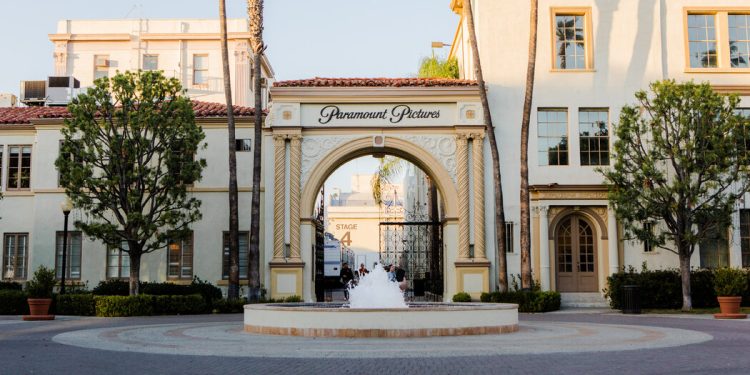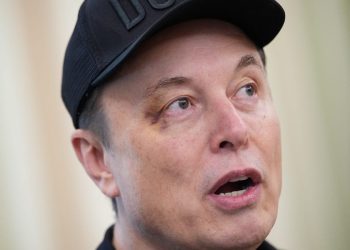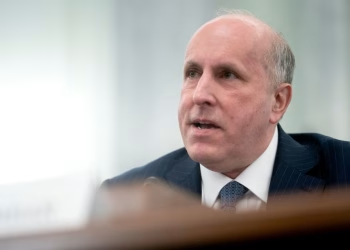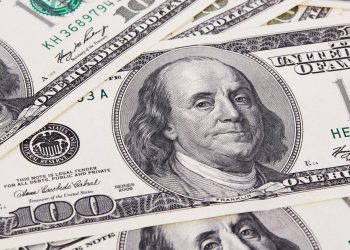In four weeks, Paramount made three offers to purchase Warner Bros. Discovery, thereby raising the financial stakes of a deal that would reshape the media landscape.
But all of the proposals, which began in mid-September, were rebuffed, including Paramount’s offer that Warner Bros. Chief Executive David Zaslav could remain co-CEO and co-chairman of a combined company.
The details of these secret deals were outlined in a letter that Paramount Chief Executive David Ellison sent to the Warner Bros. board of directors. and which was reviewed by the New York Times.
The full contents of the letter have not been revealed until now. But they help explain what pushed Warner Bros. On Tuesday, the company was put up for sale.
The move essentially sparked a frenzy of public interest this week from other potential suitors, including Comcast and Amazon. If they bid, it could push Paramount to increase their offer even further.
Warner Bros. Discovery said Tuesday it was initiating a sale due to “unsolicited interest from multiple parties” both in certain parts and in the entire company.
Paramount’s first offer was $19 per share, before increasing to $22 in late September.
Paramount’s latest offer was filed Oct. 13, offering to pay company shareholders $23.50 per share in cash and stock, according to the letter. This offer represented an 87 percent premium to Warner Bros. stock price. Discovery before its intention to bid for the company was first announced in early September. On Wednesday, Warner Bros. action. closed at $20.53.
A Warner Bros. buyout. Discovery by Paramount would be a tectonic shift for the media industry. It would bring together two of the biggest Hollywood studios, Warner Bros. and Paramount, thereby giving enormous box office clout and placing CNN and CBS News under the same umbrella, which would give the new company enormous influence over the news industry. It would combine Paramount+ and HBO Max, two of the largest streaming services, delivering the company’s movies and shows to hundreds of millions of living rooms.
“We are confident that we are the best partner for WBD, with the combination of our two companies creating a Hollywood champion on a grand scale for the benefit of our companies’ shareholders, consumers and the entertainment industry as a whole,” Mr. Ellison wrote.
Tuesday’s announcement indicated that Warner Bros. Discovery always wanted to consider other avenues. This includes plans to split the company in two, first announced in June, as well as evaluating competing offers.
In the letter, Paramount claimed that it was Warner Bros. only viable suitor, saying any competing offer would likely come from a larger company which would invariably invite regulatory scrutiny. And Mr Ellison argued that a deal would create a more formidable competitor for these giants.
“Other potential acquirers of WBD – now or in the future – would face significant (perhaps insurmountable) hurdles given their dominant market positions,” Mr. Ellison wrote.
Analysts say no bidder, including Paramount, will be able to escape regulatory scrutiny given the consolidation of the media industry and President Trump’s long-standing animosity toward CNN.
Paramount already owns a major movie studio, and Comcast abandoned its bid for Time Warner Cable in 2015 amid an antitrust investigation.
Amazon has more than 200 million subscribers, making it the second largest streamer in the country, behind Netflix. It has also faced antitrust scrutiny in Europe, where regulators would also have to approve any deal.
Political considerations could also factor into a review, analysts say.
“One of the things that I think would be really crucial here is the politics behind this: Which one would Donald Trump like or wouldn’t he like?” Babson College professor Peter Cohan said. “Would he be willing to do things because one of his supporters got involved?
David Ellison’s father, Larry Ellison, who is backing the bid, is friends with Mr. Trump, and that relationship could help the company in the review process, analysts said. Analysts also pointed to Mr. Trump’s long-standing criticism of Comcast Chairman Brian Roberts, whom he attacked on social media.
Comcast declined to comment. Paramount and Warner Bros. Discovery also declined to comment.
Mr. Ellison, 42, the new media mogul who struck a deal this summer to take control of Paramount, has since spent freely to reposition the company. He licensed the U.S. rights to Ultimate Fighting Championship, poached the creators of “Stranger Things” from Netflix and acquired The Free Press, an online news site.
“Our recent string of exclusive content deals is a good indicator of the types of investments we would be able to make on a combined basis,” Mr. Ellison wrote.
In the letter, he explains why selling is a better path than pursuing a breakup, currently scheduled for April. Warner Bros.’s cable business, he said. Discovery will face significant pressure after losing rights to National Basketball Association games. And its streaming business, which includes HBO Max, will struggle to compete with larger rivals like YouTube and Netflix.
In his letter, Mr. Ellison said analysts on average expected per-share value for shareholders from a Warner Bros. breakup. Discover around $15, well below its buyout price of $23.50 per share.
The letter outlines other efforts by Paramount to influence the Warner Bros. board of directors. : it increased the portion of the deal paid in cash to shareholders from 60% to 80%. It also increased the fee it would pay to shareholders if the deal is not approved, from $2 billion to $2.1 billion.
Benjamin Mullin contributed reports









